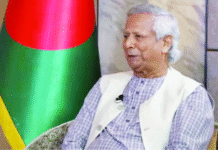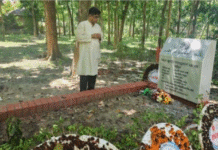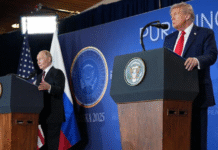The test of democracy

The people speak, but are they heard?
From the once one of the wealthiest nations Venezuela, to the new aspirations in the Democratic Republic of Congo, to the once thriving Nigeria, universal adult suffrage is coming under increasing and unwanted pressure.
Nicolas Maduro was elected as president through an election and both losing opponents in the other two countries are crying loudly “foul.” Otherwise, there’s little reason why “democratically” elected governments are coming under such pressure to go for fresh elections.
That fraud has a role to play in it is not a surprise, where people have to pay from their pockets and walk for miles to cast votes that may have no bearing whatsoever. Candidates have been alleged of organizing transport while some voters admit to being given generous allowances to either vote or just stay away.
And the counting procedures have come under question as well. There lies the eternal flaw in a democracy that’s different from the developed world, where people can pop out of work and home to cast their vote. Elections must provide for ease of vote not discomfort. And where the transgressions can be overcome asking for new polls become extraneous.
But that’s exactly what is happening with Maduro being asked to step aside, his bastion of strength the army being requested. To stage a coup of sorts, not just by Juan Guido, the elected leader of the National Assembly, but countries starting from the United States to European nations not to mention a sizeable portion of Venezuela’s electorate. They are the ones without food and rations while Maduro supporters face little shortages.
Maduro is playing a dictatorial fiddle to the extent he won’t allow food and aid amassed on Venezuela’s borders with Brazil and Colombia not to enter the country. This has led to the US imposing sanctions on the country’s 41% oil exports to it, and saying all options are on the table. The chance of military intervention is as remote as Maduro stepping aside, and hence the exhortation on the army to rebel and take Guido’s side. How power will be handled after that is anyone’s guess.
So much for democracy.
The DR Congo’s first vote in decades was to be a game-changer with its long-time dictatorial leader giving way to candidates, one of them rumoured to be his protégé.
He won, but the opposition agrees — leading to another embroiled mess of a second vote. The question is, will the electorate make the journey again from remote areas.
Nigeria’s was stranger still. The day of the election after assurance that all preparations were complete, the votes were delayed for apparent preparations not in order. The opposition smelt foul and faith in democracy eroded further. Compare that with Mr Pedroz’s snap election in April to get the majority vote he needs to tackle the Catalonian crisis.
There won’t be delays here, but two sets of people will be voting — one to secure independence, the other for stronger integration. In terms of population, the outcome is likely to go the integration route, but democracy must hold sway given a section of the population, as Bangladesh had once, feel hard done at generating revenue but getting a smaller piece of the cake.
And let’s not forget Brexit, where more and more it seems the United Kingdom will go for another referendum, this time with a clearer perception of the impact of a no deal Brexit that seems on the cards. That is the final straw on the camel’s back as to the value of the vote versus what legislators do with it. As far away as France, people openly decry their confidence in voting, including many who tangoed with the EU. Does that sound a bell?
Mahmudur Rahman is a writer, columnist, broadcaster, and communications specialist.









